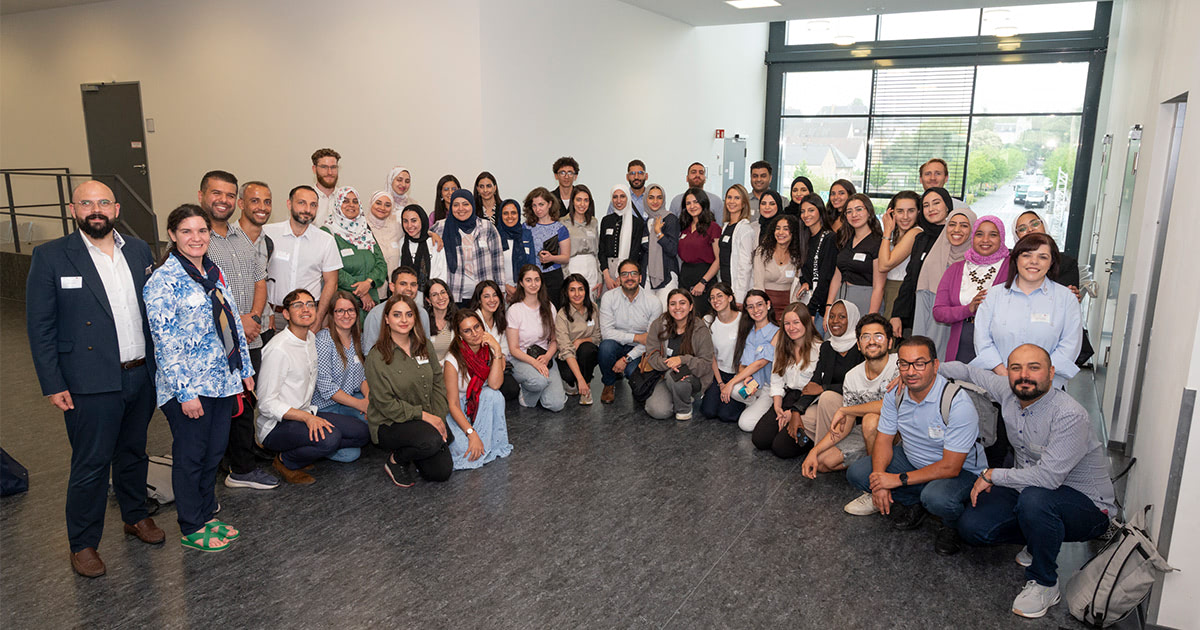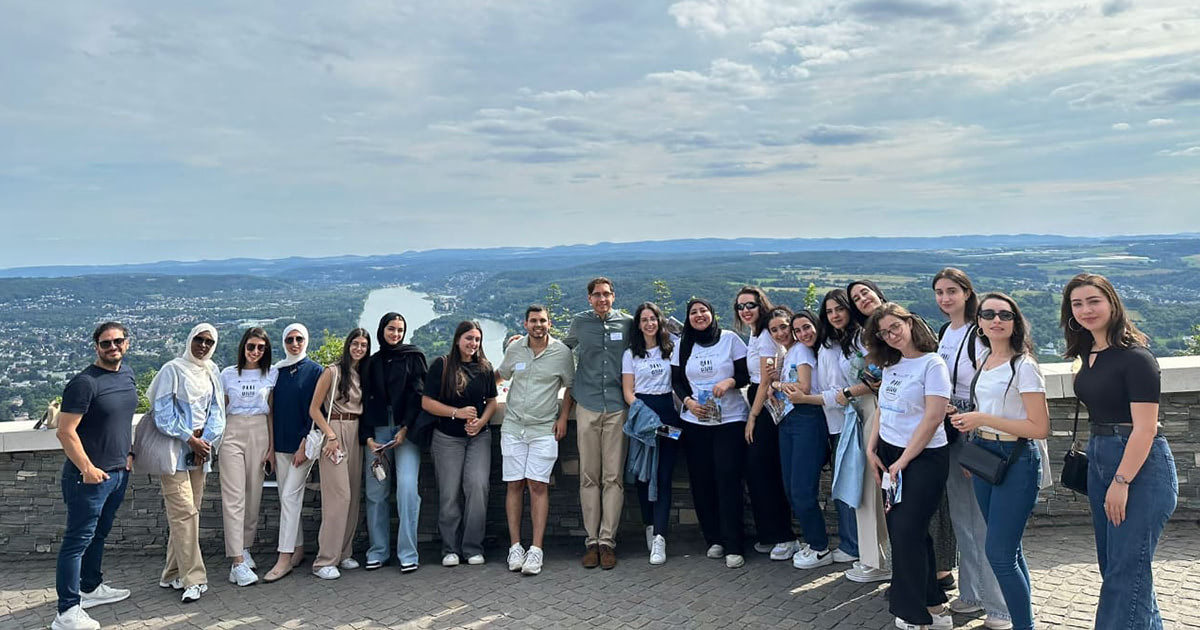Leveraging AI for a Healthier, Smarter and More Sustainable Future
LAU graduates advance their skills and build global connections while exploring the integration of AI into real-world applications.
In the 21st century, artificial intelligence (AI) has emerged from the pages of science fiction to become one of the most transformative technologies revolutionizing industries across the globe. As it continues to expand, AI now drives innovation in fields ranging from healthcare to environmental science.
In yet another achievement highlighting LAU’s commitment to advancing scientific and AI research, three LAU Nutrition graduates Raneem Assi (BS ’23), Celine El Khoury (BS ’23), and Hasmig Lily Aywazian (BS ’19), as well as Biology graduate Maha Shaheen (MS ’24) were admitted to the Summer School on Affordable AI (SAAI), a program dedicated to fostering both theoretical and experimental research in the emerging field of AI, from July 22 to 26, at the University of Bonn in Bonn, Germany.
Through course modules that integrate AI advancements with the needs and constraints of low-income MENA countries, the summer school offered the students the chance to explore core principles, potential applications, and recent breakthroughs in AI pertaining to health, education and climate change.
This initiative, led by Professor of Computational Medical Imaging Research at the University of Bonn Shadi Albarqouni, supported by the Arab-German Young Academy of Sciences and Humanities (AGYA), and partnered with Albarqouni Lab at the University Hospital Bonn, University of Bonn and Helmholtz Munich in Germany, aimed to build on the success of last year’s EEDA Autumn School, which two LAU students also attended.
Participating in such initiatives reinforces LAU’s involvement in AI and helps to foster a culture of innovation and research within the university.
“Most importantly, it enables LAU to build strong partnerships with international institutions and create opportunities for collaborative projects so it can position itself as a leader in AI education and research in the region,” said Professor Hussein F. Hassan, who has been instrumental in introducing the schools to students for both years.
This year’s program provided students with a comprehensive blend of the academic and the practical covering essential Python programming skills used in machine learning and a foundation in mathematics and statistics for a better understanding of AI algorithms. It also emphasized the importance of analytical thinking for problem-solving.
“Enhancing the students’ understanding and capabilities in this rapidly evolving field makes them highly competitive individuals in the job market and better prepared for careers in AI and related industries,” said Dr. Hassan.
Under the guidance of expert faculty and tutors, participants received hands-on training in conceptualizing and implementing AI projects such as developing simple machine learning models for classification tasks, using neural networks and image recognition to optimize personalized nutrition and health outcomes, and even exploring predictive models for forecasting weather patterns.
For Assi, who has already made notable strides by winning first place in a food security competition and being selected for protein production training in Turkey, “it was a valuable opportunity to witness firsthand the potential of AI in shaping the future and to begin laying the groundwork for integrating these technologies into my field of nutrition,” she said. “Working on these projects helped bridge the gap between what I know and what I can do.”
The experience was not without its challenges. Given her background in nutrition, El Khoury noted that “one challenge I faced was understanding some of the more technical aspects of AI,” which the educational environment and state-of-the-art resources helped her overcome.
Her peer, Aywazian, plans to apply what she has learned by integrating AI tools into her research on nutrigenomics—the scientific study of the interaction of nutrition and genes—“where I intend to explore how genetic variations influence dietary responses,” she explained. “I am determined to advance my knowledge and skills in AI. As I prepare for my PhD in the fall, I see the importance of a strong foundation in what I acquired,” she added.
In addition to the collaborative interdisciplinary projects with their peers, a standout feature of the summer school was its emphasis on international and interdisciplinary networking. As part of their projects, students connected with peers and professionals from different backgrounds and countries—including Germany and the MENA region—and enjoyed cultural experiences through social events.
Shaheen described the experience as unforgettable, noting that “it not only broadened my academic horizons but also left me with cherished memories and a deep appreciation for the diversity of cultures represented at the school.”
She particularly valued the session on integrating the Arabic dialect into AI development, which can enhance its relevance and effectiveness in Arabic-speaking regions by ensuring that AI systems are more inclusive, culturally sensitive, and accessible to a broader audience.
“This opened my eyes to the concept of culturally relevant AI applications and their necessity in our everyday life,” she said.
Dr. Albarqouni hopes to further foster these partnerships and bring even more enriching programs to the MENA region.
“The program’s success was significantly enhanced by the support from our esteemed university partners in Arab countries, notably LAU,” he said. “Their contributions were instrumental in enriching the curriculum and providing valuable resources that greatly benefited the participants.”
